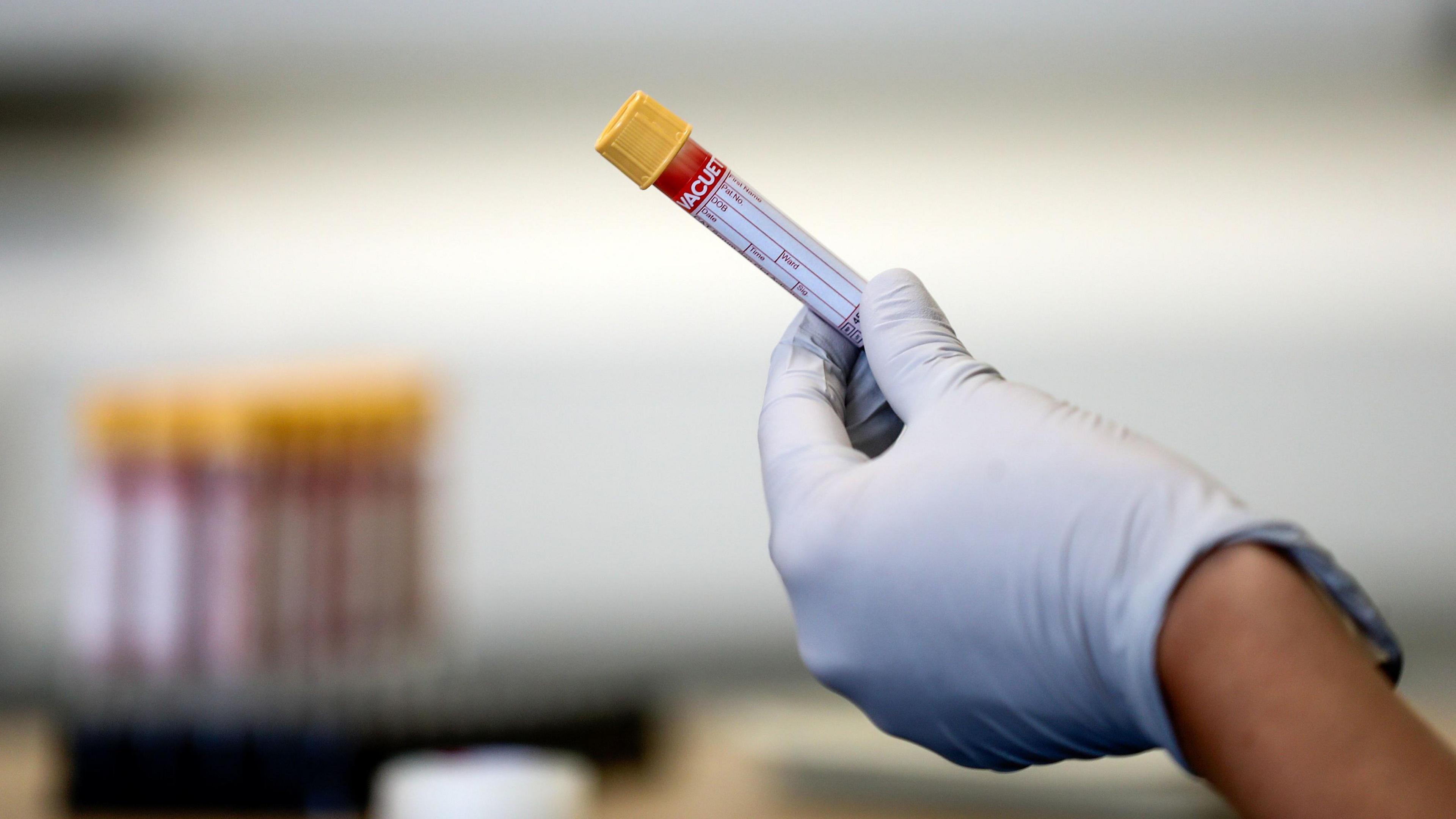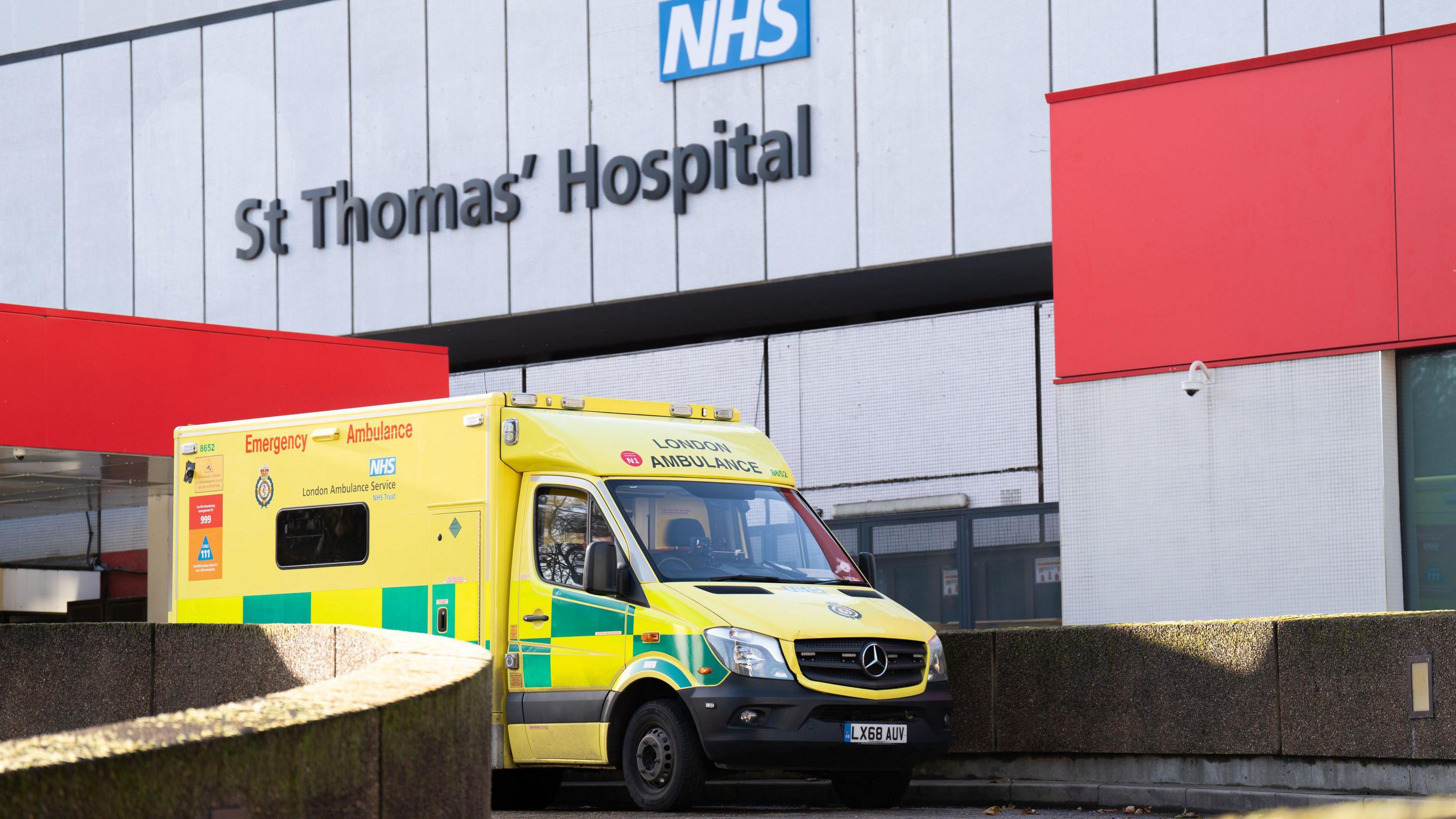Blood test delays continue after cyber attack - GP

NHS teams have been asked to only process "clinically critical" blood tests
- Published
A London GP says blood tests are being delayed as staff are asked to process only "clinically critical" samples following a cyber attack that he says has had a "massive effect" on pathology services in the capital.
The attack on IT systems at firm Synnovis has affected King's College Hospital, Guy's and St Thomas' - including the Royal Brompton and the Evelina London Children's Hospital - as well as primary care services.
Dr Abdul Kamali, says the NHS is "planning" and "prioritising" patient care, adding: "We've coped through Covid which was a major situation so hopefully we will get through this."
Synnovis said it had "put additional resources in place" so that urgent samples received from GPs or hospitals could be processed "within appropriate timeframes".
A critical incident was declared on 4 June after the incident affected the delivery of services such as blood transfusions and test results.

The cyber-attack affected services provided by Guy’s and St Thomas’ NHS Foundation Trust and King’s College Hospital NHS Foundation Trust
On Monday, Synnovis said in an email to GP and primary care services that it could only process 400 blood samples a day from the impacted trusts.
"For the time being we can only accept samples which the requesting clinician considers to be ‘clinically critical’," it said.
"As experts, your clinical view of what is considered ‘critical’ will be accepted by the laboratory, but we urge you to apply this definition carefully, given the severe capacity limitations we are facing."
Synnovis' email added it was unable to track tests that have not been processed and could not respond to individual queries about the status of samples.
"If you have a patient you consider to be critical, but you haven’t received a test result for them, please repeat their blood test and send it to us marked ‘critical’ so that we can process it," it said in the email.
Dr Kamali, who works in east and south London, told BBC Radio London: "Doing a test and having to repeat it has an impact on resources.
"Without tests results, diagnoses can't be made, treatments can't be given, so it has had a massive impact for patients coming into the surgery as well as going to hospital.
"We have had patients who have been to the hospital on Monday and they've waited for many hours and the results are not coming back."
'More blood donors needed'
He added: "They've had to come back to us the following day and try to repeat this test.
"It's all about planning, communication with the patients and prioritising."
Prof Dee Thiruchelvam, chief nursing officer at NHS Blood and Transplant, said manual checks of blood took longer to process than the computerised system.
She told BBC Radio London: "In a situation where you do not know a patient's blood type, the safest blood type to give is O negative, which is the universal blood type.
"The other alternative is O positive if they're male or a woman over child-bearing years.
"We use about three units of blood every minute in the NHS. So during our circumstances at the moment, we are needing a lot more O negative and O positive."
She said there had been a "fantastic response" to the call for blood donors in London.
Hospitals grapple with aftermath of cyber attack
- Published12 June 2024
O-type blood donors needed after London cyber-attack
- Published10 June 2024
Trainees urged to help hospitals after cyber-attack
- Published9 June 2024
"Patient safety is key, which is why we're calling for new donors to come forward to help.
"We're going to continue to need donations in the coming weeks and months, because we need blood 365 days a year."
A spokesperson for Synnovis confirmed that after the cyber-attack, some unprocessed blood samples were discarded as they were "no longer suitable for analysis".
"Our team is currently working with the trusts and GPs to determine which samples will be affected and the process for informing patients," they said.
"We understand and apologise for any distress this may cause patients who have to re-test."
The cyber-attack is believed to have been carried out by a Russian group calling themselves Qilin.
Meanwhile, Home secretary James Cleverly told BBC London the UK had "very strong cyber defences".
He said: "The events recently show us that we need to be constantly vigilant and we need to be constantly liaising with our international partners.
"The threat is constantly evolving and our defences against those threats are also constantly evolving.
"Of course we are investigating what's going on whilst also making sure we defend ourselves against future such attacks."
Listen to the best of BBC Radio London on Sounds and follow BBC London on Facebook, external, X, external and Instagram, external. Send your story ideas to hello.bbclondon@bbc.co.uk, external